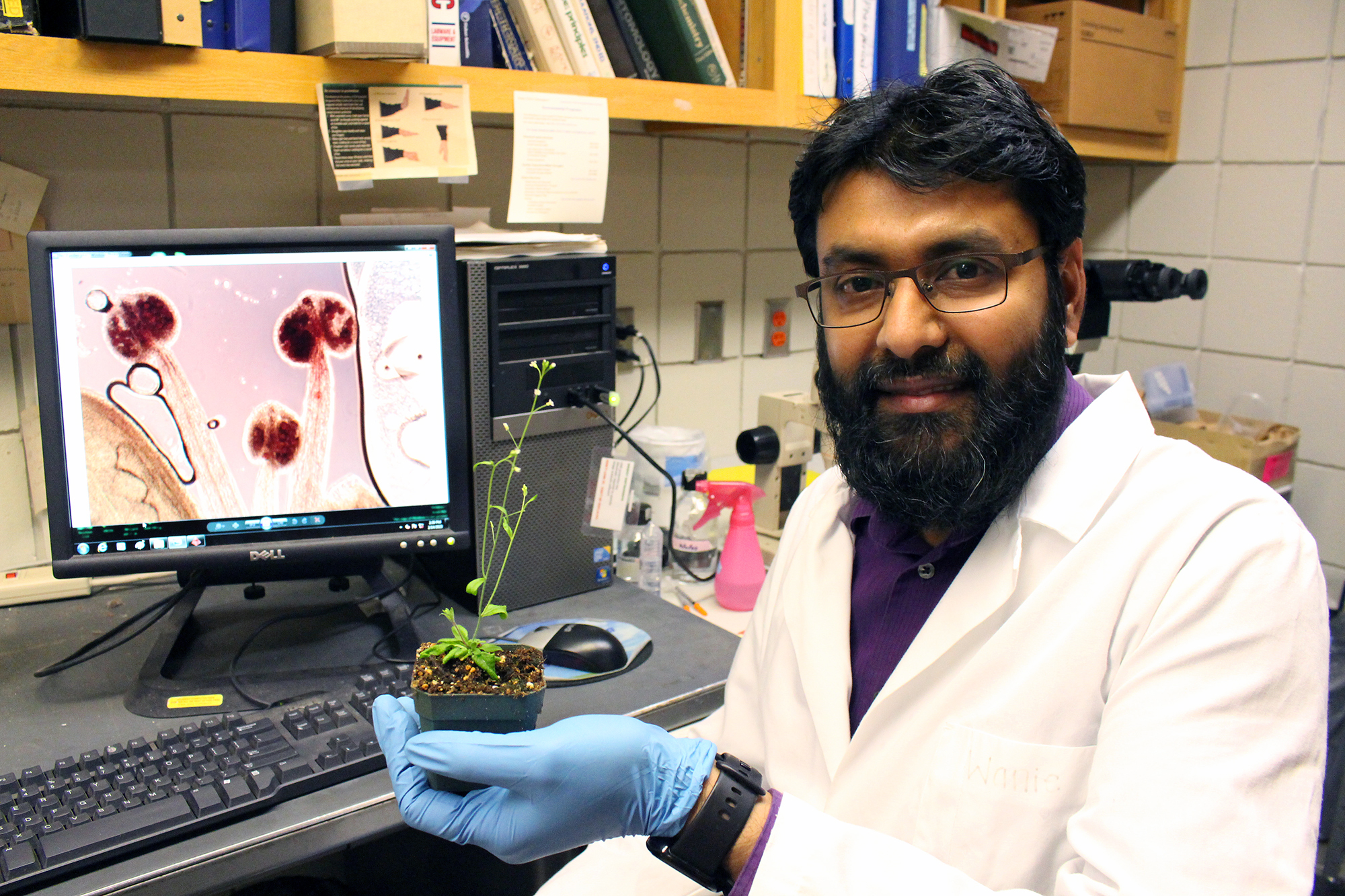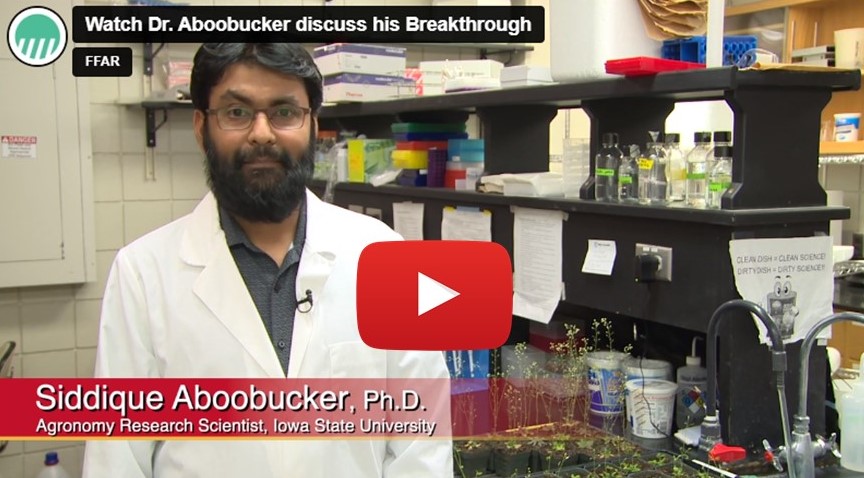
A “Breakthrough” story and video interview on research conducted by Drs. Thomas Lübberstedt and Siddique Aboobucker and graduate student Liming Zhou is featured on the Foundation for Food and Agriculture Research (FFAR) website. The research focused on “Accelerating Crop Development with Improved Haploid Fertility.”

According to the FFAR article, “Plant breeders and researchers are developing crops that can better withstand climate stresses, produce larger yield or contain higher levels of essential nutrients – but it takes plant breeders an average of 10 years to develop a new crop. New breeding tools like doubled haploid technology can speed up development of hybrid crops, which are created by crossbreeding varieties of plants to promote desired traits such as increased yield or pathogen resistance.
While studying accelerated plant breeding in a project funded in part by FFAR, Aboobucker uncovered a process that has significant potential to efficiently and cheaply restore fertility to male haploid plants. This breakthrough has major implications for crop breeding research and techniques. Next steps include trying this process with haploid corn varieties. By increasing the success of doubled haploid breeding and fertility, breeders will be able to provide growers with a larger number of crops created to promote more desired agricultural traits such as higher yield and increased resilience in a shorter time.”
To read the initial article on this research, visit the CALS website.
Photo at top: Dr. Siddique Aboobucker, research scientist in agronomy, holds a five-week-old haploid Arabidopsis ps mutant plant in flowering stage. The computer screen shows magnified images of a flower, stained on a microscopic slide. Anthers, male parts of the flower, look like mushrooms on the screen and pollen grains appear like tiny pearls. Photo by Whitney Baxter, Iowa State University.





